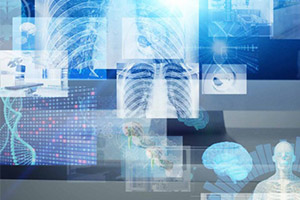Rare Diseases:
Empowering Diagnosis and Treatment through Genomics
Rare diseases pose unique challenges, often affecting a small number of individuals and presenting with diverse and complex symptoms. In Africa, the impact of rare diseases is significant, with many individuals and families facing the difficulties of obtaining an accurate diagnosis and accessing appropriate treatment. At AfriGenomics, we are committed to addressing these challenges head-on by harnessing the power of genomics, specifically Whole Genome Sequencing (WGS) and Whole Exome Sequencing (WES), to revolutionize the diagnosis and treatment of rare diseases.
Statistics on Rare Diseases in Africa:
According to the World Health Organization (WHO), an estimated 7,000 rare diseases exist globally, affecting around 6% to 8% of the population. In Africa, where limited resources and knowledge about rare diseases prevail, the impact is substantial. It is estimated that millions of Africans are affected by rare diseases, many of which have no known cure.

How NGS (WGS and WES) has Transformed the Diagnosis of Rare Diseases:
Next-Generation Sequencing technologies, such as WGS and WES, have revolutionized the field of rare disease diagnosis. By sequencing the entire genome or targeted regions, these approaches enable a comprehensive analysis of an individual’s genetic makeup, providing a deeper understanding of the underlying genetic variations associated with rare diseases. The benefits of NGS in rare disease diagnosis include:
1. Identification of Disease-Causing Variants:
WGS and WES have greatly enhanced the ability to identify genetic variants that contribute to rare diseases. By examining the entire exome or genome, these sequencing techniques can pinpoint specific genetic variations, providing critical insights for accurate diagnosis.
2. Broadening the Scope of Diagnostics:
Traditional diagnostic methods may fail to identify the cause of rare diseases due to their limited scope. NGS allows for a broader and more inclusive analysis, enabling the detection of rare or previously unidentified genetic mutations that play a role in disease manifestation.
The Importance of WGS and WES in Rare Disease Diagnosis and Treatment:
WGS and WES play a pivotal role in diagnosing and treating rare diseases for several reasons:
1. Accurate Diagnosis:
By revealing the underlying genetic causes of rare diseases, WGS and WES facilitate precise and timely diagnoses. This knowledge is crucial for individuals and families affected by rare diseases, as it allows them to access appropriate healthcare resources, seek targeted treatments, and plan for the future.
2. Personalized Medicine:
Understanding the specific genetic variations associated with rare diseases enables the development of personalized treatment approaches. WGS and WES help tailor therapies based on an individual’s genetic profile, maximizing the potential for successful outcomes and minimizing adverse effects.
AfriGenomics' Commitment to Rare Diseases:
At AfriGenomics, we are deeply committed to addressing the challenges faced by individuals and families affected by rare diseases in Africa. Our dedicated team of experts utilizes the power of WGS and WES to drive innovation and transform the landscape of rare disease diagnosis and treatment.
We strive to:
Provide Accessible and Reliable Diagnostic Solutions:
We are dedicated to making advanced genomic technologies accessible to individuals and healthcare professionals across Africa. By offering comprehensive WGS and WES services, we aim to bridge the gap in rare disease diagnostics, empowering patients and their families.
Foster Collaboration:
We actively collaborate with rare disease organizations, research institutions, and healthcare providers to foster knowledge exchange and drive research efforts. Through these partnerships, we aim to improve understanding, develop targeted therapies, and ultimately improve the lives of those affected by rare diseases.
Advocate for Awareness and Support:
AfriGenomics is committed to raising awareness about rare diseases in Africa and advocating for increased support and resources. We believe that by working together, we can make a meaningful impact on the lives of individuals and families affected by rare diseases.
Together, let's navigate the complex landscape of rare diseases and bring hope and improved healthcare outcomes to those who need it most.
Contact AfriGenomics today to learn more about our commitment to rare diseases and how our genomic solutions can assist in the diagnosis and treatment of rare diseases.






